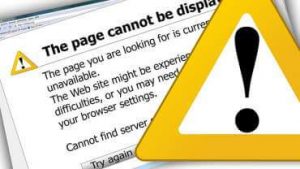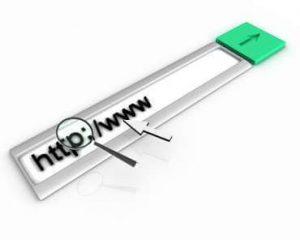Web design is not a simple job. It requires a great deal of skill and expertise to create a nice website for yourself or your client. Many individuals stay confused about web design processes and how to get things done right. This often leads to errors that can have an inverse impact on the required consequence of a web design task. Here are 6 common of these errors that you can prevent getting the best out of web design.
6 Common mistakes in web design to avoid:

1. Your website doesn’t tell your users anything
It doesn’t, of course. But that doesn’t save the job of letting your customers know about your business. You see, most consumers will determine if the service is of any use to them within seconds of opening the web page. If it doesn’t work well, they’re going to quit. It’s crucial to maintain something appealing as bait for them to carry on–and that means you’re just putting in what’s needed.

2. Mobile Friendliness is an option
Did you understand that more individuals are using the Internet from their mobile phones than their PC or laptops? Any website design company will inform you that big mobile traffic, which is more portable and a cheaper way to access the internet, is essential for a website. The conclusion? Your web page must be compulsorily mobile-friendly for all devices across all systems.

3. Lots of links
There aren’t too many links going to too many websites from a specified website. Users prefer to have significant data in one location. However, if you need connections to other websites, plug in a button that enables individuals to go back to a previous page. If you miss this, users will be extremely peeved and will not enjoy your web services. Try to allow your customers as many choices as they might have to remain secure and play it intelligent. These are the most 6 common errors that generally occur.

4. Social media connections at The Top
Never placed social media connections at the top. That would fundamentally invite users to move to social media and the tireless act of constant scrolling down the feed starts from there. If you want your social media links to be placed on the website, put them right at the bottom or on the contact us page, but don’t have them on top.

5. Tiny Links and Buttons
Allow visitors to access the hyperlinks with buttons of moderate size. Tiny buttons pose a threat to tourists impatient to get to a site. Try to maintain the buttons big enough for a human finger and that would add to a completely trouble-free service. Try to erase dead URLs as frequently as possible because they also give the company a poor feeling.

6. Contact data that is difficult to locate
Contact data must be readily accessible to customers. To add all possible contact information, try to maintain a distinct page on the website. These include addresses, phone numbers and, of course, connections to a contact form. Adding a contact form can do wonders and help customers, as they need to go too far to look for someone to clarify their doubts. An email is the next best option and if they don’t discover a contact form that needs submission, most consumers will look for an email as an alternative. For example contact us.
Sifting through data that is true is often not simple, but later turns out to be incorrect. We often create errors when working on things that affect us and hamper our efficiency. However, errors do not spare for Internet pages. If the first gateway to the scheme and the organization is not properly designed, you could lose a lot of traffic and could add considerably to the company’s losses. Consider the web page as an advertisement and behave accordingly to your company’s credit.




